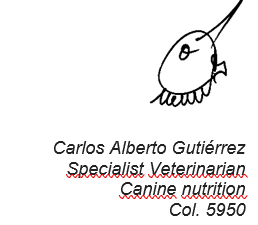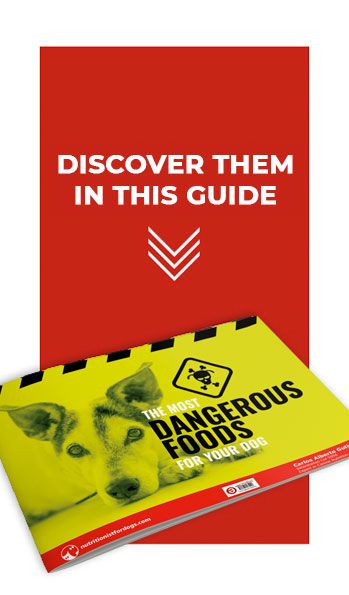
Common behavioral issues in dogs from a nutritional perspective
Various factors can lead to behavioral challenges in dogs.
These range from physical and verbal abuse to poor socialization, inadequate training, neglect, excessive humanization, medical ailments, aging, crowding, unexpected life events such as births or deaths in the family, as well as relocations. All these elements can play a pivotal role.
Yet, even when dogs are well cared for and have interacted with other dogs since puppyhood, enjoy daily exercise, and still exhibit signs of nervousness, anxiety, or even aggression towards their owners, it is crucial to consider NUTRITION as a potential root cause of these behavioral issues.
Allow me to illustrate this with a recent case that came to my attention a few months ago.
Meet Elvis, an 18-month-old German Shepherd, purchased by Ana and Luis (names altered for privacy) from a supposedly “responsible” breeder—though that’s debatable. Elvis underwent private training sessions and obedience classes with positive reinforcement from the age of 16 weeks. As this was their first dog, Ana and Luis were determined to provide the best care possible.
Understanding Sudden Aggression in Dogs
Elvis’s case offers a quintessential example to help comprehend behavior issues that were initially misdiagnosed and undoubtedly linked to nutrition.
Around the age of 6-7 months, Elvis’s behavior began to change. His owners, alarmed by his escalating aggression, such as growling when they attempted to take his toys or pet him, his aversion to ear cleaning or nail trimming, sought help from a veterinary behaviorist when he turned 10 months old.
A unique aspect that caught my attention during their communication was that Elvis exhibited pacing and anxious behavior, even attempting to hump Luis’s leg when overly anxious.
Interestingly, at the age of around 7 months, coinciding with his change in behavior, he developed food intolerance, leading to pruritus (itching). His treating veterinarian, who had been overseeing his care since puppyhood, recommended a “special” commercial diet. This intolerance led to a lack of appetite and chronic diarrhea, which intensified his aggression and isolation; he distanced himself from anyone approaching.
Living in discomfort around the clock, it’s unsurprising that his behavior suffered.
Addressing the Underlying Issue: Nutrition
Unfortunately, when my veterinary colleague specializing in behavior examined Elvis, he acknowledged the potential physiological and medical causes of his behavior but overlooked dietary changes. Instead, he recommended trying different training sessions and obedience classes from what they had been following since Elvis was a pup, as a solution for his behavioral issues.
This approach backfired—Elvis’s chronic gastrointestinal issues worsened, aggression heightened, and his appetite dwindled, making his training sessions progressively more challenging.
Tryptophan’s Impact on Aggressive Dogs
At this point, Ana, Luis, and Elvis sought help from my clinic.
Frustrated by the inability of even a seasoned professional dog trainer to ameliorate Elvis’s behavior or alleviate his anxiety and aggression levels, they sought alternative solutions online. They stumbled across an article I had published some time ago, titled, “Your Dog’s Behavior and Their Nutrition.”
This article highlighted the benefits of tryptophan, a precursor to serotonin, a vital nutrient for the brain, crucial for neuron function and a balanced nervous system, contributing to a calm demeanor.
Where is Tryptophan Found?
Tryptophan is found in animal protein. It’s imperative to provide your dog with a well-prepared, natural diet, abundant in this protein type. I assure you that in commercial diets like kibble, the quality of tryptophan often suffers due to extensive processing and nutrient deficiencies.
Reading this article marked a turning point for them. They reached out to me, shared Elvis’s story, and we got to work.
Common Instances of Skin Irritation and Digestive Issues
I frequently encounter cases of dogs plagued by skin irritations, ear scratching, paw licking, and chronic diarrhea—clear indicators of allergies or food sensitivities with significant digestive implications.
In such cases, a specific natural diet is required to soothe irritated mucosa, balance and nurture a healthy gut microbiome, and provide orthomolecular nutrients to combat inflammation and fortify intestinal cells: enterocytes and colonocytes in the small and large intestines, respectively.
Strengthening the Digestive System
For Elvis, my first step was to enhance his digestive system with orthomolecular nutrients as his gut was weak due to his diet of kibble, which offers little digestive support. This alone produced a remarkable impact on Elvis’s demeanor within days.
Subsequently, we transitioned him to a tailored natural diet designed for his gastrointestinal condition arising from food intolerance. In slightly over a week, his transformation was astounding—no more pacing, complaining, or heightened anxiety. His appetite surged, his diarrhea subsided, and his itching diminished.
Gradually, he began to exhibit behavior akin to a “normal” dog, underscoring the importance of nutrition. Regrettably, in as many as 95% of such cases, dogs are fed unnatural commercial feed.
It took us around three months to fully stabilize his digestive system, thus mitigating the food intolerance. During this time, his behavior underwent a remarkable change.
As he started feeling better, his anxiety and aggression dissipated. He became more receptive to affection and petting, tolerated grooming, allowed ear cleaning, brushing and nail trimming, relinquished his toys willingly, and responded more favorably to training—all without a hint of aggression.
We Are What We Eat
This case highlights the undeniable correlation between nutrition and health. Should you observe changes in your dog or cat’s behavior, consider potential triggers and consult your veterinarian for a comprehensive assessment. If no apparent causes are found, seek a veterinarian with extensive experience in nutrition to formulate an appropriate natural diet.
Remember, behavior and nutrition are inextricably linked.
Click here to complete the questionnaire if you’d like to work together with us.
Yours in canine health,
Carlos


